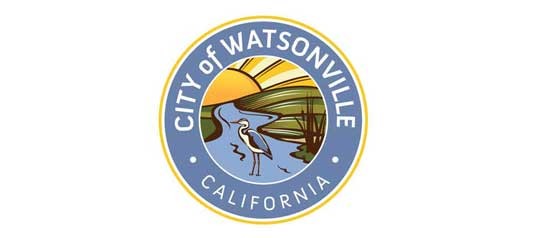WATSONVILLE — Watsonville on Wednesday became one of 29 cities that received letters from the office of the U.S. Attorney General, which questioned their so-called sanctuary city policies.
The Watsonville City Council in April reaffirmed Watsonville as a sanctuary city, a move taken by jurisdictions through the U.S. that essentially limits cooperation with federal immigration officials.
But the declarations have drawn the ire of President Donald Trump and his administration, which has taken a hardline approach to immigration issues since he was elected.
The vaguely threatening Nov. 15 letter was addressed to City Manager Charles Montoya and signed by Acting U.S. Assistant Attorney General Alan Hanson.
In the letter, Hanson points out that eligibility to receive the Edward Byrne Memorial Justice Assistance Grant is based on compliance with federal immigration laws.
The grant funds police departments, prosecution, courts, corrections departments and other programs related to law enforcement.
Specifically, U.S. Code states that government agencies cannot prohibit public officials from sharing residents’ citizenship and immigration status with the U.S. Customs and Immigration and Naturalization Service. The law also says that jurisdictions cannot impede federal authorities in immigration issues.
Watsonville City Councilman Felipe Hernandez pointed out that the federal law only applies to deportation hearings, and that applying it broadly in the case of sanctuary cities is “stretching the code.”
Watsonville’s policy, he added, is not a violation of the federal law.
“We are going to continue our Sanctuary Ordinance policy as is,” he said. “That means we are simply not participating in any ICE proceedings, but we are not in any way impeding nor hampering in their proceedings.”
In the letter, Hanson gives a Dec. 8 deadline for the city to respond, and asks Montoya to state whether the city will comply with the federal law, “should you receive an FY 2017 Byrne JAG grant award.”
On its website, the Bureau of Justice Assistance calls the grant the “primary provider of federal criminal justice funding to state and local jurisdictions.”
In 2016, California received more than $18.2 million from the grant. This year, that number is $17.7 million.
Hernandez said that Watsonville’s share would be about $40,000, and would be used to purchase body cameras for police officers and crime analyst tools.
In a press release, Assistant City Manager Matt Huffaker called the city’s immigration policy “a critical public safety issue in Watsonville.”
He explained that requiring Watsonville Police officers to enforce federal immigration policies would destroy the trust they have built among the community.
According to Huffaker, the State of California, the cities of San Francisco and Philadelphia and other jurisdictions are challenging federal efforts to make immigration enforcement a condition of receiving funds that are sourced from income tax money.
A federal court in Pennsylvania recently issued a preliminary injunction blocking the federal government from withholding funding from the City of Philadelphia, Huffaker said.
“The City of Watsonville is reviewing the most recent letter and will respond appropriately,” Huffaker said.












